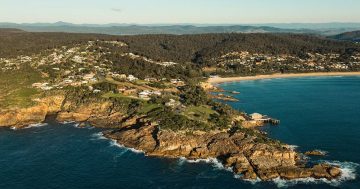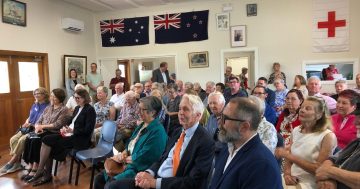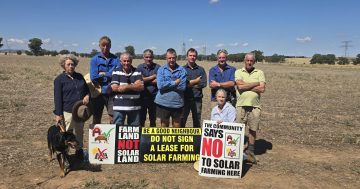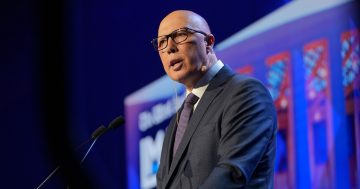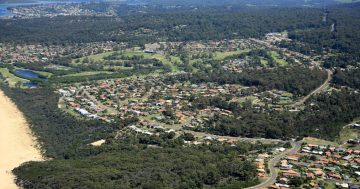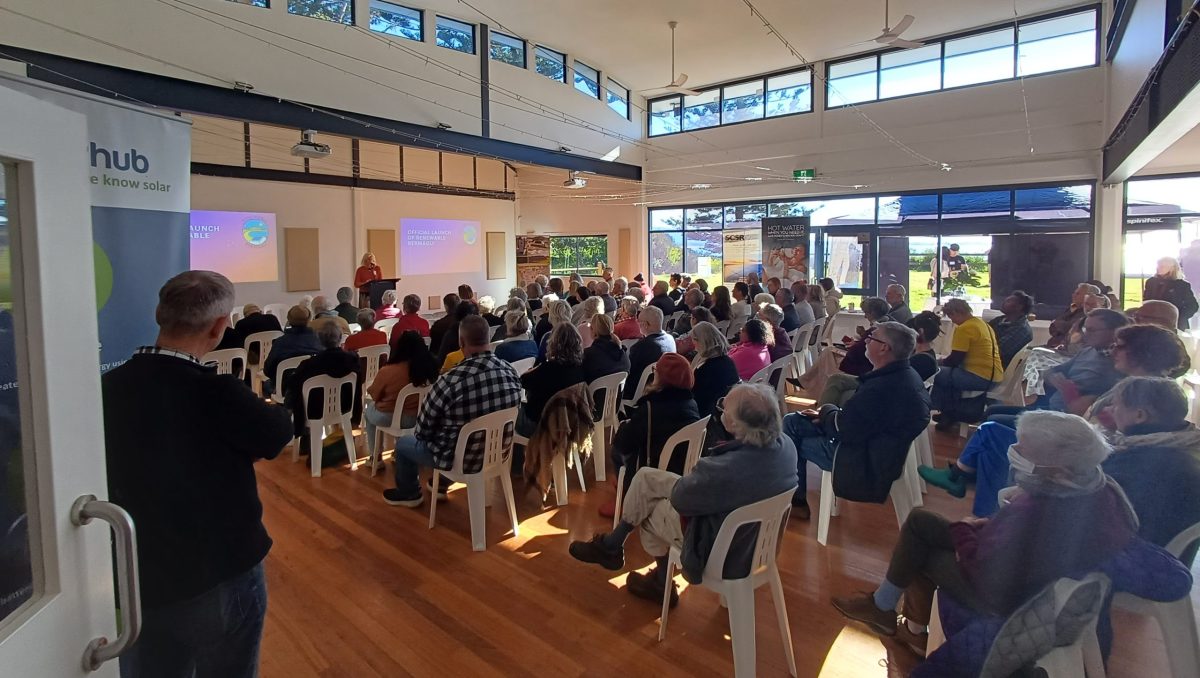
The launch event of Renewable Bermagui on 28 July was well attended by people of all ages. Photo: Supplied.
Renewable Bermagui is a new community initiative in the Bega Valley that has been formed around renewable energy. Led by volunteers, they share a mission with established community groups Clean Energy for Eternity (CEFE) in Tathra and Cobargo and District Energy Transition (CaDET).
All three focus on expanding the use of renewable energy, improving resilience to natural disasters, lower energy costs and creating local job opportunities.
Dr Matthew Nott was years ahead of his time when he founded CEFE in 2006. His goal was to raise awareness about climate change, both understanding the threat and finding community-based solutions. CEFE has raised hundreds of thousands of dollars to put solar panels, and in some cases batteries, on many community buildings in Tathra, six surf lifesaving clubs in the Far South and Jindabyne, and 18 RFS sheds. It gives the RFS greater resilience, such as recharging radios during power blackouts.
In 2016, the Tathra community, in collaboration with Bega Valley Shire Council, set up an 80 kW solar farm to power the sewerage works. It saves ratepayers’ money, and a proportion of the savings goes back to the community for more renewable energy projects. It took the community just nine months to raise the $100,000 needed.
“We have shown there is huge appetite for renewable energy in our part of the world, not just for greater resilience and cheaper electricity, but also jobs for tradies, technical expertise and installers,” Dr Nott said. “They are exactly the people we want to attract and retain to keep local communities vibrant.”

Founder and president of Clean Energy for Eternity Dr Matthew Nott was the keynote speaker at the launch event of Renewable Bermagui on 28 July. Photo: Marion Williams.
Founding CaDET member Debra Summer said the group was formed in response to the impact of the extended power outage during the Black Summer bushfires.
“The fragility of the power system with no communications and no water pumps was in our faces. That is how CaDET was born,” she said.
CaDET received grants to install solar banks and batteries at the Cobargo Co-operative, RFS shed, RSL Memorial Hall and School of Arts Hall. The halls can act as cool refuges when temperatures soar.
There was also grant funding for a part-time community energy coordinator who showed people how to read their energy bills and shop around for better deals from energy retailers, and also hosted energy expos to give people information about new technologies and how to make incremental changes.
Another grant funded a feasibility study into a community microgrid/solar farm that could be switched off from the main grid to keep the town functioning when needed.
Like CEFE, CaDET wants solutions that benefit the community. It is looking at partnerships, connections, and a funding model whereby part of the microgrid is community-owned to keep benefits local. CaDET is exploring options like selling energy back to larger users and is working with the Bega Circular Economy team.
CaDET spent significant time developing a robust governance structure and is sharing that with Renewable Bermagui.

Alex Boulgakov, a founding member of Renewable Bermagui and a member of Cobargo and District Energy Transition. Photo: Marion Williams.
Electrical engineer Alex Boulgakov is a founding member of Renewable Bermagui. CaDET was her entry to this circle of renewable energy volunteering. “We started Renewable Bermagui in February 2024 as a sub-chapter of CaDET.”
She said members wanted to make a difference through education, access to renewable energy, and energy resilience. That is making information that is readily accessible in cities available to regional areas.
They will start with small projects like hosting seminars and expos to improve energy literacy among homeowners, renters, businesses and community groups.
“Long term, the goal is to equip more community buildings with solar and batteries so there is always back-up power and storage,” Ms Boulgakov said. “Bermagui is even more vulnerable than Cobargo in terms of where we are on the grid.
“The region should celebrate that CaDET and CEFE have been able to mobilise so much funding and infrastructure,” she said. “It is definitely impressive that volunteer groups have achieved this.”
Dr Nott said the region clearly felt the risk of climate change. “The community can demonstrate we are not a big part of the problem, but we can be a big part of the solution to climate change.”
Ms Summer said the power came from being community led. “We know what we need and what we want, and we didn’t wait for people to come to us with solutions. We are at the tipping edge of real change occurring.”







